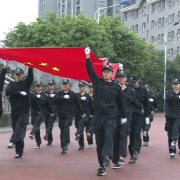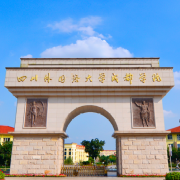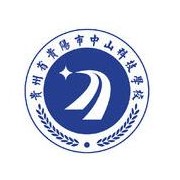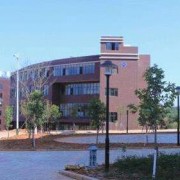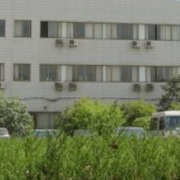in china(china还是in)
来源:择校网 时间:2025-01-15 18:55:48
一、in China什么时候做介宾,什么时候做状语
China就是in的介宾,in China整体这个短语只能作状语
通常是看该短语在句子中的位置.以下两种情况通常是状语:
放在句子开头,用逗号隔开.如:In China,most students go to school by bike.
2.放在句子末尾,不用逗号.如:Children drink more milk in America.
定语常放在句中,跟在某个名词或名词短语之后.
如:The weather in Singapore is almost the same all year round.新加坡的温度一年四季几乎相同.
in Singapore是用来修饰the weather,修饰名词,做定语.
总结起来,状语是用来修饰整个句子的,翻译成“在某国,.”.说得通俗点,就是句子描述的这种情况,发生在这个国家.
定语是用来修饰名词或者短语的,通常翻译成“某国的...”
二、from China与from in China的区别
"from China"和"from in China"之间的区别在于前者是更常见和自然的表达方式,而后者则相对较不常见或不太自然。
"from China"直接表示某物或某人来自中国,强调的是出发地或原产地。例如:"I bought this shirt from China."(我从中国购买了这件衬衫。)
"from in China"则是一种更加复杂或笨拙的表达方式,同时指明了物品或人员来自中国,且还特别强调了在中国的位置或处境。这种表达方式通常不太常见,可能会导致一些语法上的混淆或不自然。例如:"I received a package from in China."(我从中国收到了一个包裹。)
总结来说,"from China"是更常用和自然的表达方式,而"from in China"则相对较少见且可能会引起一些语法上的问题。
三、是in***beijing***in***china还是in***beijing***china
1.在中国的北京,可以翻译为in Beijing,China或者in Bejing of China.
2.实际上,翻译在中国的北京,in Beijing in China或者是in Beijing China都是不对的。
3.北京是中国的一个市,翻译的时候可以不用重复用2个in造成句子成分累赘,直接用逗号隔开即可。
4.。。of。。。意为什么的什么,所以中国的北京也可以翻译为Beijing of China.例如美国的纽约也可以翻译为New York of United States,英国的伦敦也可以翻译为London of UK.
5.句子示例:①I am working in Beijing,China/I am working in Beijing of China.
我在中国的北京工作。
②There are so many famous places in Beijing,China/There are so many famous places in Beijing of China.
在中国的北京有很多著名的景点/地方。
6.城市、国家单词首字母要大写,因此北京:Beijing,中国:China.
四、in the acinent of china还是in acinent china
不考虑其他,这个定冠词the还是要用上。
1.定冠词the表示特指。表示名词所指的人或事物是同类中的特定的一个,以别于同类中其他的人或事物,相当于汉语中的“那个”或“这个”的意思。
the book in my bag the boy under the tree
the apples in the basket the hospital near my home
2.可以和单、复数名词,也可以和不可数的名词连用。
the books the book the rice the bread the football
the old man the interesting book the teachers the women
定冠词的用法,附后:
1).定冠词的最基本的用法是“特指”:表示某个或某些特定的人或物。
Do you know the girl in a red skirt?你认识那个穿红裙子的女孩吗?
Beijing is the capital of China.北京是中国的首都。
2).再次提到上文提到过的人或物,应该用定冠词the。例如:
Tom has an apple, The apple is big and red.
There is a boy under the tree.The boy is my brother
3).指谈话双方都知道的人或物。例如:
Let’s go and give it to the teacher.咱们去把它交给老师吧。
Open the door,please!请打开门。
4).用于某些固定词组中。例如:
in the morning/ afternoon/ evening等。
5).用在形容词前表示一类人。
the old老人 the young年轻人 the rich富裕的人
6).用在表示“姓”的复数名词前,表示一家人或夫妇二人。例如:
The Whites are spending their holiday in England.
The Greens came to China two years ago.
7).用在由普通名词构成的表示场所的专有名词前。

the Great Wall长城 the Summer Place颐和园
the United States美国 the October Revolution十月革命
the Chinese People’s Liberation Army中国人民解放军
the Long March长征
8).用在序数词或形容词最高级前
The first thing I want to say is to listen carefully in class.
He is the tallest one in our class.
9).世界上独一无二的事物等(月亮、地球、天空、宇宙)
the globe太阳系 the universe宇宙 the atmosphere大气层
The sun rises in the east.
The earth goes round the sun.
10).在世纪,年代名词前用冠词。
in the 1980s或 in the 1980’s 20世纪80年代
in the nineteenth century二十世纪
11).在江河、山脉、湖泊、海洋、群岛、海峡、海湾运河前用the。
the Changjang River长江
the West Lake西湖 the Pacific Ocean太平洋
12).在表示方位的词前,如:
The sun rises in the east, and sets in the west.太阳从东边升起,从西边落下
Jiangxi lies in the south of China.江西位于中国的南方
END,本文到此结束,如果可以帮助到大家,还望关注本站哦!
